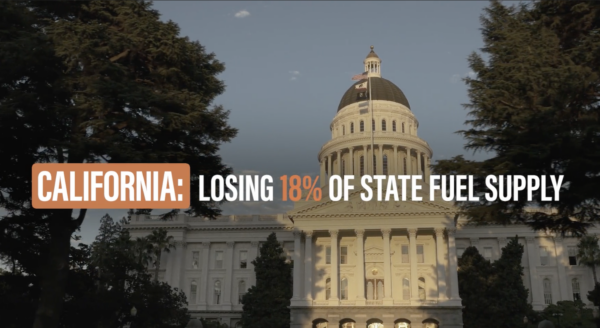Californians must be utterly perplexed.
Their governor is doing everything he can to shut down in-state oil production – all while their president is traversing the globe asking sketchy foreign regimes to bring more oil to market.
As New York Times columnist Thomas Friedman put it:
“It was a bad look and bad energy policy for the U.S. president to fly all the way to Saudi Arabia to plead for more oil output when all he had to do was fly to Houston.”
Or call Sacramento.
The baffling split screen of U.S. political leaders begging for more foreign oil while simultaneously discouraging domestic production illustrates just how bungled U.S. energy policies have become in recent years.
The culprit? Somewhere along the way “climate leadership” started to require politicians to ignore our most basic energy realities.
For example, despite the fact that California still uses more than 500 million barrels of oil per year and will have substantial oil needs for decades to come, Governor Newsom is freezing permit approvals while pursuing legislation and rulemaking designed to cripple the state’s oil production industry.
Similarly, in Washington, despite the fact that oil and gas still supply nearly 70% of U.S. energy, President Biden has cancelled leases and pipelines and refused to approve new production or provide permits for the necessary supporting infrastructure.
All the while, both have gone out of their way to vilify oil companies as profit-hungry opportunists after prices skyrocketed due to the supply crunch their policies helped create.
In short, Biden and Newsom care too much about energy politics to get their energy policies right. Pretending we’re moving “beyond oil” may score political points, but it is not a coherent energy security strategy in a world that still largely runs on oil – as anyone who has paid record gas prices in recent months can attest.
While everyone agrees that the U.S. should lead the way to a cleaner energy economy, blind anti-oil orthodoxy isn’t going to produce the oil we need in the near term to ease prices for transportation fuels or lower inflation.
Bludgeoning energy companies may be in style, but they are still standing by to help – if policymakers will let them.
As Ryan Lance, CEO of ConocoPhillips, told Friedman:
“While this administration meets regularly with environmental groups who want to eliminate all fossil fuel use immediately, there’s very little dialogue with the oil and gas industry. We have had some meetings — but to be honest, there haven’t been genuine discussions regarding energy supply issues, energy security, regional North American cooperation, and planning for a rational and coordinated energy transition to a low-carbon economy.”
Energy is a crucial and complex sector of the global economy. Changing the way we fuel transportation, grow food, heat and cool homes, and effectively live our lives will take decades of careful planning and execution.
Our political leaders are failing that test. Instead of delivering an orderly, incremental transition grounded in our energy realities, they are offering senseless, politicized energy chaos – all while consumers and businesses suffer the consequences.


